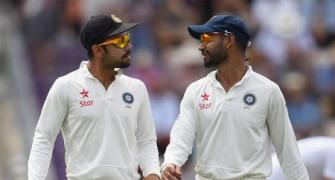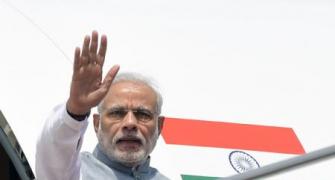 Ahead of Sri Lankan Prime Minister Ranil Wickremesinghe's first foreign visit to India, at least 16 Indian fishermen arrested recently for allegedly poaching in Sri Lankan waters will be released in a goodwill gesture.
Ahead of Sri Lankan Prime Minister Ranil Wickremesinghe's first foreign visit to India, at least 16 Indian fishermen arrested recently for allegedly poaching in Sri Lankan waters will be released in a goodwill gesture.
Prime Minister's Office said a fishing organisation in Tamil Nadu had made an appeal to the government to consider the medical condition of the arrested fishermen.
The fishermen are to be released later on Sunday on humanitarian grounds, the office said.
Wickremesinghe will leave on Monday on a three-day visit to India, his first official visit overseas since being appointed prime minister in January this year.
Wickremesinghe is expected to hold talks with Prime Minister Narendra Modi, External Affairs Minister Sushma Swaraj and President Pranab Mukhrjee.
The talks are expected to touch upon the sensitive fishermen issue.
In March, Sri Lanka ordered the release of 86 Indian fishermen arrested for allegedly poaching in Sri Lankan waters as a goodwill gesture to mark Modi's visit, the first by an Indian premier to this country in over 25 years.
Later the same month, Sri Lankan President Maithripala Sirisena ordered the release of 54 Indian fishermen from Tamil Nadu.
In response to opposition criticism that Wickremesinghe was expected to enter the Comprehensive Economic Partnership Agreement with India to the detriment of Sri Lanka, Minister of Strategic Development and International Trade Malik Samarawickrama said in a statement that the CEPA would not figure in the Lankan premier's agenda in New Delhi.









